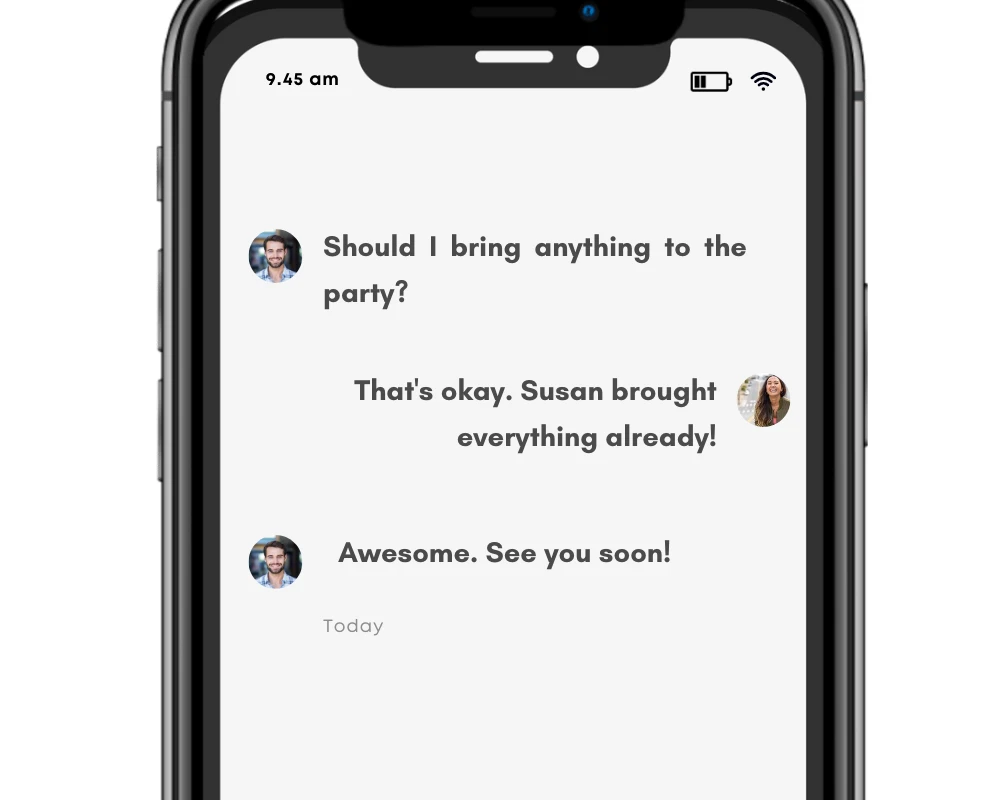
What's the past tense of "bring"?
The simple past tense of bring is brought, and the past participle is also brought. Use brought for both simple past and past participle forms.
Brung is sometimes mistaken as the past tense of bring, which is easy to see why: ring is rung as a past participle, sing becomes sang/sung, and swim turns to swam/swum. Bring is slightly trickier since it doesn't follow this same verb conjugation pattern.
Definition of bring
The Cambridge Dictionary defines the transitive verb bring as "to take or carry someone or something to a place or a person, or in the direction of the person speaking."
- The past tense of bring is brought.
- The past participle of bring is brought.
Verb forms of 'bring'
Is "bring" a regular or irregular verb?
The verb bring is irregular. Its past tense and past participle forms are both brought, not "bringed." The difference between regular and irregular verbs is that regular verbs end in –ed in their past tense forms, while irregular verbs end in something other than –ed.
When to use "brought" (past) vs. "brought" (participle)
I brought my lunch to work yesterday.
I've brought my lunch to work every day this week.
The verb bring uses the same form for both simple past tense and present or past perfect. When used as a participle (shown in the second sentence), it requires an auxiliary verb like have, has, or had. The simple past doesn't use a helper verb since it's a complete tense, so brought can stand alone in sentences, whereas participles require an auxiliary verb.
Similar irregular verbs
Sentence examples: bring, brought, brought
• I bring fresh flowers every week.
• She brings joy to everyone around her.
• They bring their own supplies to class.
• Everyone brought their swimsuits to the pool party yesterday.
• I didn't bring the dog but I brought my children with me.
• The memory brought goose bumps to her arms.
• I've brought my lunch to work every day this week.
• The package was brought to my doorstep by the delivery person.
• She had brought her own blanket to the picnic.
Synonyms & nearby words
Synonyms for bring
Nearby phrases
Origin of the verb bring
Old English bringan “to bear, convey, take along in coming; bring forth, produce, present, offer” (past tense brohte, present or past perfect), from Proto-Germanic *brangjanan (source also of Old Frisian branga “attest, declare, assure”.
Practice Questions: Brought or bought
Can you ___ your notes to the meeting?
She always ___ her lunch from home.
He had already ___ the book when I arrived.
Yesterday, I ___ a cake to the party.
If you ___ your umbrella, you won’t get wet.
FAQs
What is the past tense of "bring"?
What is the past participle of "bring"?
Is "brung" ever correct?
Is "bring" a regular or irregular verb?
What's the difference between "bring" and "take"?
Sources
-
"Bring, v." Cambridge Dictionary. Cambridge University Press. Date of access 15 Oct. 2025.
-
"Bring." Etymology Online. Date of access 15 Oct. 2025.
Advertisement








.webp&w=3840&q=75&dpl=dpl_13tcGbrn5BXPQFsQmuQWqib9Y3DN)